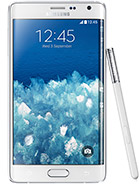Samsung Galaxy Note Edge Radiation Levels
[add_sar_ranking_update]
| Select a phone to compare SAR levels to other popular phones |
| Cell Phone Usage & Radiation Exposure | ||||||||||||
Samsung Galaxy Note Edge Safety Tip:How Much Will Turning Off Wi-Fi and Bluetooth Reduce Radiation?This SAR chart reveals how turning off Wi-Fi and Bluetooth on your Samsung Galaxy Note Edge can significantly reduce your exposure to radiation. Our SAR comparison chart shows that by simply turning off Wi-Fi and Bluetooth transmitters, you can lower the RF radiation exposure to your head by %, and you can lower exposure to the body by %, when considering these differences between cellular-only (Wi-Fi/Bluetooth OFF) and simultaneous use exposure (Wi-Fi/Bluetooth ON), a wise way to reduce excessive phone radiation is to tap off unnecessary transmitters when not in use! Additionally, when using your phone as a hotspot, turning off Bluetooth can reduce your exposure by up to 100% according to the FCC SAR report for device number A3LSMN915F. Samsung Galaxy Note Edge SAR Levels
|
Key Takeaways
- Children vs Adults: Children have higher SAR levels due to thinner skulls and developing tissues, making them more vulnerable to radiation.
- Wi-Fi Impact: Simultaneous use of cellular and Wi-Fi transmission increases SAR levels for all age groups.
- Precautionary Measures: Using radiation protection products like QuantaCase can help mitigate these risks, especially for younger users.
By understanding these differences, parents and guardians can make informed decisions to better protect their children from excessive microwave radiation exposure, emphasizing the need for safer smartphone usage practices and protective accessories like QuantaCase.

| Children vs Adults Radiation Exposure |
The Specific Absorption Rate (SAR) of a mobile device measures the amount of radio frequency energy absorbed by the body during device usage.
The SAR values for the galaxy-note-edge (FCC ID A3LSMN915F) are as follows:
- 0.26 W/kg when held at the head with cellular transmission only
- 0.25 W/kg when worn on the body with cellular transmission only
- 1.15 W/kg when used as a Hotspot or Airplay
- 0 W/kg when held at the head with simultaneous cellular and Wi-Fi transmission
- 0 W/kg when worn on the body with simultaneous cellular and Wi-Fi transmission
- when used as a Hotspot simultaneously with other transmitters active.
Samsung Galaxy Note Edge - SAR Levels
FCC SAR Levels
- FCC Approval Date This is the date the phone SAR test was completed before the phone's release to the public as required by law. 23 October 2014
- FCC ID The FCC ID is the code used to register a device for FCC compliance A3LSMN915F
- FCC Report Link A direct link to the FCC's website for confirming SAR levels that are listed on our website - We did the homework for you!
- US SAR Ratings USA Legal Limit is 1.6 W/kg USA Legal Limit is 1.6 W/kg - FCC SAR testing is measured in watts per kilogram (or W/kg) averaged over ONE gram of simulated biological tissue. It is a well known FACT SAR testing was not designed for protecting women or children from harmful radiation exposure, and SAR Test do not take into consideration health effects below thermal levels
- Head SAR Level SAR test when held against your head when only using cellular service. Wifi and other transmitter are NOT active 0.26
- Body SAR Level SAR test when held against your body only using cellular service. Wifi and other transmitter are NOT active 0.25
- Product Specific Use SAR test when held against your body only using the phone as a hotspot. Cellular and other transmitter are NOT active 1.15
- Simultaneous Transmission The highest possible SAR recorded with ALL transmitters active, Cellular, WiFi, and Hotspot 0.58
- Simultaneous Head The highest possible SAR test when held against your HEAD with cellular and WiFi transmitters active, N/A
- Simultaneous Body The highest possible SAR test when held against your BODY with cellular and WiFi transmitters active, N/A
- Hotspot SAR The highest possible SAR test when held against your BODY using the phone as a hotspot with cellular and WiFi transmitters active, N/A
EU SAR Level
- EU SAR Ratings European Legal Limit is 2.0 W/kg - EU SAR testing is measured in watts per kilogram (or W/kg) averaged over TEN grams of simulated biological tissue.
- Head SAR Level 0.24 W/kg
- Body SAR Level 0.33 W/kg
Available as:
SM-N915FY for Europe
SM-N915A for AT&T
SM-N915T for T-Mobile
SM-N915K/SM-N915L/SM-N915S for Korea
SM-N915G for Singapore, Australia, Spain
SM-N915D for Japan
| Network | Technology | GSM / HSPA / LTE |
|---|---|---|
| 2G bands | GSM 850 / 900 / 1800 / 1900 | |
| 3G bands | HSDPA 850 / 900 / 1900 / 2100 | |
| 4G bands | LTE 800 / 850 / 900 / 1800 / 2100 / 2600 | |
| LTE 800 / 850 / 900 / 1700 / 1800 / 1900 / 2100 / 2600 (Bands 1, 2, 3, 4, 5, 7, 8, 20) – SM-N915FY |
||
| Speed | HSPA 42.2/5.76 Mbps, LTE Cat6 300/50 Mbps or Cat4 150/50 Mbps | |
| GPRS | Yes | |
| EDGE | Yes |
| Launch | Announced | 2014, September |
|---|---|---|
| Status | Available. Released 2014, November |
| Body | Dimensions | 151.3 x 82.4 x 8.3 mm (5.96 x 3.24 x 0.33 in) |
|---|---|---|
| Weight | 174 g (6.14 oz) | |
| SIM | Micro-SIM | |
| – Fingerprint sensor – S Pen stylus |
| Display | Type | Super AMOLED capacitive touchscreen, 16M colors |
|---|---|---|
| Size | 1600 x 2560 pixels, 5.6 inches (~524 ppi pixel density) | |
| Multitouch | Yes | |
| Protection | Corning Gorilla Glass 3 | |
| – Curved edge screen |
| Platform | OS | Android OS, v4.4.4 (KitKat) |
|---|---|---|
| Chipset | Qualcomm Snapdragon 805 | |
| CPU | Quad-core 2.7 GHz Krait 450 | |
| GPU | Adreno 420 |
| Memory | Card slot | microSD, up to 128 GB |
|---|---|---|
| Internal | 32/64 GB, 3 GB RAM |
| Camera | Primary | 16 MP, 3456 x 4608 pixels, optical image stabilization, autofocus, LED flash, check quality |
|---|---|---|
| Features | Dual Shot, Simultaneous HD video and image recording, geo-tagging, touch focus, face/smile detection, panorama, HDR | |
| Video | 2160p@30fps, 1080p@60fps, 720p@120fps, optical stabilization, dual-video rec., check quality | |
| Secondary | 3.7 MP, 1440p@30fps |
| Sound | Alert types | Vibration; MP3, WAV ringtones |
|---|---|---|
| Loudspeaker | Yes | |
| 3.5mm jack | Yes |
| Comms | WLAN | Wi-Fi 802.11 a/b/g/n/ac, dual-band, Wi-Fi Direct, hotspot |
|---|---|---|
| Bluetooth | v4.1, A2DP, EDR, LE | |
| GPS | Yes, with A-GPS, GLONASS, Beidou | |
| NFC | Yes | |
| Infrared port | Yes | |
| Radio | No | |
| USB | microUSB v2.0 (MHL 3 TV-out), USB Host |
| Features | Sensors | Accelerometer, gyro, proximity, compass, barometer, UV, heart rate, SpO2 |
|---|---|---|
| Messaging | SMS(threaded view), MMS, Email, Push Mail, IM | |
| Browser | HTML5 | |
| Java | Yes, via Java MIDP emulator | |
| – Fast battery charging: 60% in 30 min (Quick Charge 2.0) – ANT+ support – S-Voice natural language commands and dictation – Air gestures – Dropbox (50 GB cloud storage) – Active noise cancellation with dedicated mic – MP4/DivX/XviD/WMV/H.264 player – MP3/WAV/eAAC+/AC3/FLAC player – Photo/video editor – Document viewer |
| Battery | Li-Ion 3000 mAh battery | |
|---|---|---|
| Stand-by | ||
| Talk time | Up to 18 h (3G) | |
| Music play | Up to 67 h |
| Misc | Colors | Black, White |
|---|---|---|
| SAR EU | 0.24 W/kg (head) 0.33 W/kg (body) | |
| Price group |
| Tests | Performance | Basemark OS II: 1260 / Basemark X: 17108 |
|---|---|---|
| Display | Contrast ratio: Infinite (nominal), 3.799 (sunlight) | |
| Camera | Photo / Video | |
| Loudspeaker | Voice 72dB / Noise 75dB / Ring 70dB | |
| Audio quality | Noise -95.9dB / Crosstalk -93.3dB | |
| Battery life | Endurance rating 52h |
Samsung Galaxy Note Edge - QuantaCase™
Samsung Galaxy Note Edge - FCC SAR Report Image
-
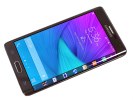 Samsung Galaxy Note Edge
Samsung Galaxy Note Edge -
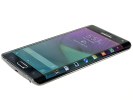 Samsung Galaxy Note Edge
Samsung Galaxy Note Edge -
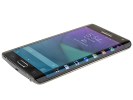 Samsung Galaxy Note Edge
Samsung Galaxy Note Edge -
 Samsung Galaxy Note Edge
Samsung Galaxy Note Edge -
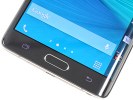 Samsung Galaxy Note Edge
Samsung Galaxy Note Edge -
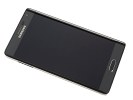 Samsung Galaxy Note Edge
Samsung Galaxy Note Edge -
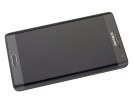 Samsung Galaxy Note Edge
Samsung Galaxy Note Edge -
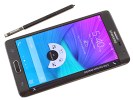 Samsung Galaxy Note Edge
Samsung Galaxy Note Edge -
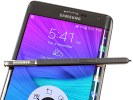 Samsung Galaxy Note Edge
Samsung Galaxy Note Edge -
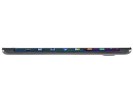 Samsung Galaxy Note Edge
Samsung Galaxy Note Edge -
 Samsung Galaxy Note Edge
Samsung Galaxy Note Edge -
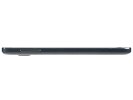 Samsung Galaxy Note Edge
Samsung Galaxy Note Edge -
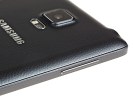 Samsung Galaxy Note Edge
Samsung Galaxy Note Edge -
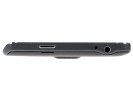 Samsung Galaxy Note Edge
Samsung Galaxy Note Edge -
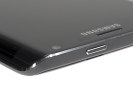 Samsung Galaxy Note Edge
Samsung Galaxy Note Edge -
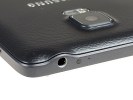 Samsung Galaxy Note Edge
Samsung Galaxy Note Edge -
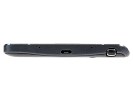 Samsung Galaxy Note Edge
Samsung Galaxy Note Edge -
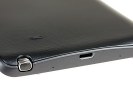 Samsung Galaxy Note Edge
Samsung Galaxy Note Edge -
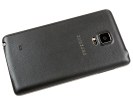 Samsung Galaxy Note Edge
Samsung Galaxy Note Edge -
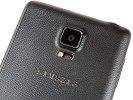 Samsung Galaxy Note Edge
Samsung Galaxy Note Edge -
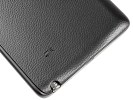 Samsung Galaxy Note Edge
Samsung Galaxy Note Edge -
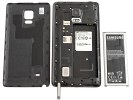 Samsung Galaxy Note Edge
Samsung Galaxy Note Edge -
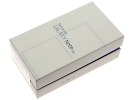 Samsung Galaxy Note Edge
Samsung Galaxy Note Edge -
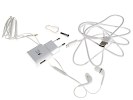 Samsung Galaxy Note Edge
Samsung Galaxy Note Edge -
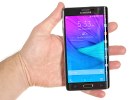 Samsung Galaxy Note Edge
Samsung Galaxy Note Edge -
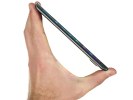 Samsung Galaxy Note Edge
Samsung Galaxy Note Edge

